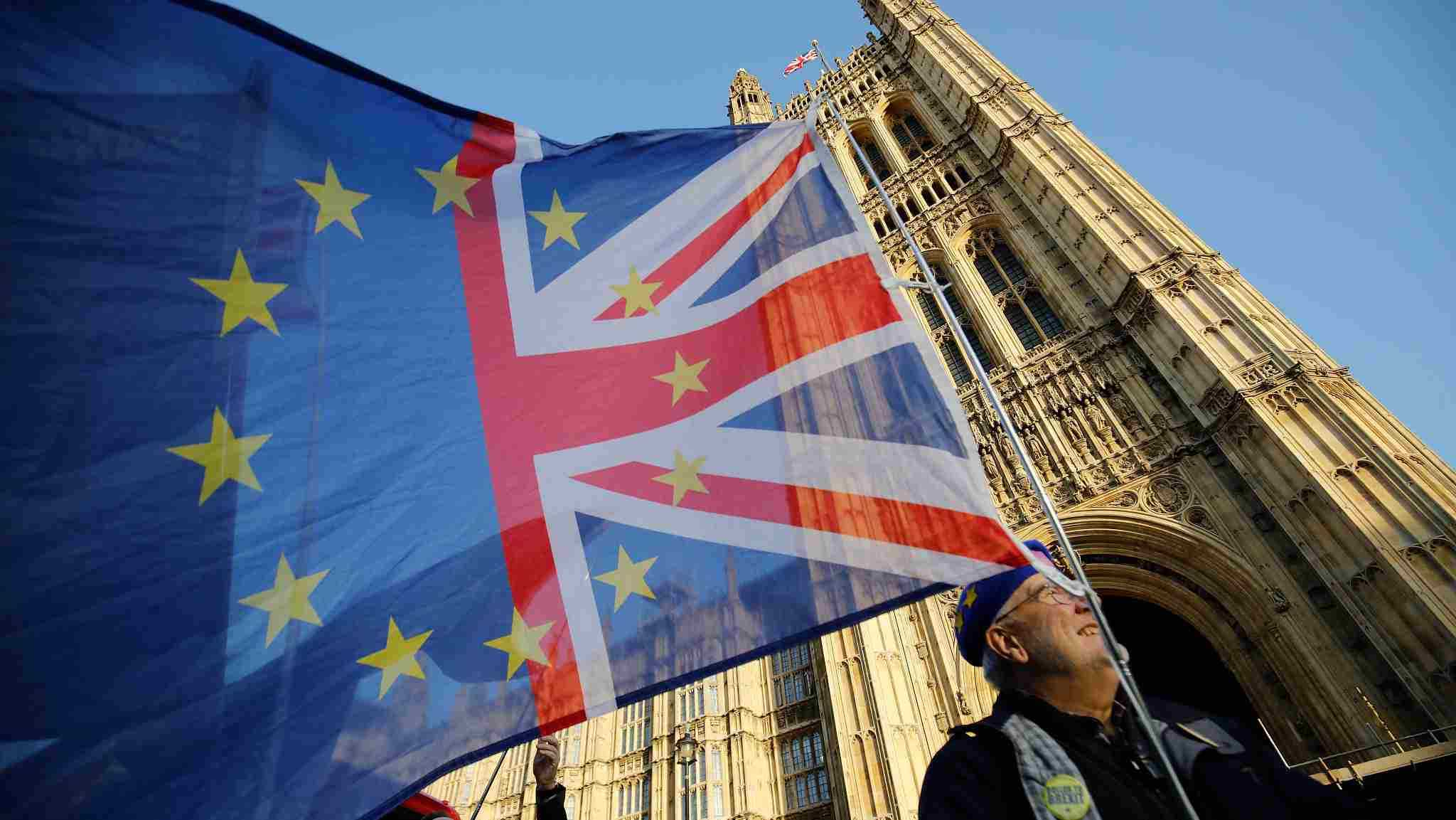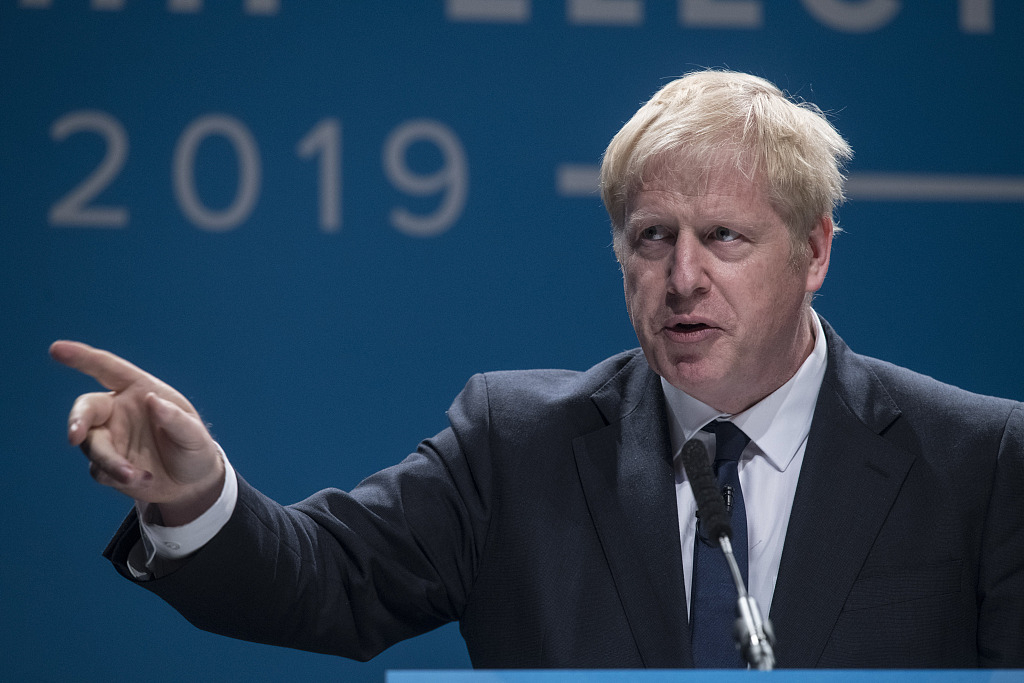

Editor's Note: Chris Deacon is a postgraduate researcher in politics and international relations at the University of London and previously worked as an international commercial lawyer. The article reflects the author's opinions, and not necessarily the views of CGTN.
Earlier this week, British Members of Parliament voted by 315 to 274 in favor of an amendment to legislation which will force the government to hold debates in the parliament in the days ahead of the current Brexit deadline of October 31.
This is of crucial importance because the likely next prime minister of the United Kingdom, Boris Johnson, has refused to rule out what is referred to as the "prorogation" of the parliament – the ending of a session of the parliament, and a suspension until the beginning of the next session.
A majority of MPs are against the idea of the UK leaving the European Union without a deal – a so-called "no-deal Brexit" – and have stated their aim to do everything in their power to block this eventuality.
This could include, for example, attempting to legislate for the government to seek an extension of the Article 50 period, or even attempting to bring down the government with a "no-confidence" vote and installing an interim, anti-Brexit government.
Boris Johnson, however, has stated that he is willing to take the UK out of the EU on October 31, even if Theresa May's withdrawal agreement has not been renegotiated to his satisfaction and no other deal has replaced it.

Former UK Foreign Secretary Boris Johnson speaks during an event at Manchester Central in Manchester, UK, June 29, 2019. /VCG Photo
Proroguing the parliament would allow him to block any attempts by MPs to stop this from happening because, although MPs would not be sitting, the current legal default position is that the UK will leave on October 31 with or without a deal.
The government, therefore, does not actually need to do anything other than sit back and allow this to happen.
Many MPs, however, see this tactic as deeply undemocratic. For them, to take such an important act on behalf of the nation without allowing elected representatives to have a say would go against the spirit of the UK constitution.
Moreover, given that many of the most ardent Brexit supporters claimed, as a reason for their enthusiasm, that the UK would be restoring "parliamentary sovereignty" by leaving the EU, to deprive those parliamentarians of their power appears highly hypocritical.
MPs have, therefore, for some weeks now been trying to find a way through the UK's often confusing, uncodified constitution to stop the next prime minister's government from being able to suspend the parliament. Up until now, they have not been successful; however, this week's vote could assist them greatly.
In essence, legislation concerning Northern Ireland – and not directly related to Brexit – has been amended to require that the government publishes regular reports in autumn on power-sharing in Northern Ireland and tables motions for MPs to vote on.

Pro-EU demonstrators wave flags outside the Houses of Parliament in Westminster, London, July 17, 2018. /Reuters Photo
There are further provisions which state that the parliament must be recalled for at least five days if prorogation occurs.
This helps MPs who are against no-deal in two ways. First, it makes the suspension of the parliament much harder for the next government.
Second, the motions that the government must publish are amendable. MPs will, therefore, be able to amend the motions to require that the government does not leave the EU without a deal – likely by requiring the government to seek an extension to Article 50 period – as Theresa May was earlier this year.
These are serious matters, and the fact that the amendment this week orchestrating these measures passed with a clear majority is emblematic of the strength of feeling in the parliament.
Even more worrying for Johnson is that four current government ministers abstained in the vote, going against government policy in the process.
In ordinary times these ministers would likely be sacked from their positions, but these are not ordinary times. In fact, even the Chancellor of the Exchequer Philip Hammond – effectively the second most powerful member of the government after the prime minister – abstained in the vote.
Most embarrassingly, Johnson's leadership rival Jeremy Hunt allegedly abstained "by mistake" as he thought he had been allowed to miss the vote.
Clearly, if Johnson is indeed elected as the next prime minister, he will have a huge uphill battle ahead of him to deliver a no-deal Brexit.
With the new European Commission president, Ursula von der Leyen, also making clear this week that she would be happy to extend the Article 50 deadline further, the Brexit process could have many months, and even years, ahead of it yet.
(If you want to contribute and have specific expertise, please contact us at opinions@cgtn.com)

Copyright © 2018 CGTN. Beijing ICP prepared NO.16065310-3
Copyright © 2018 CGTN. Beijing ICP prepared NO.16065310-3